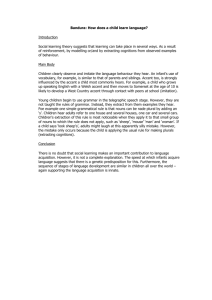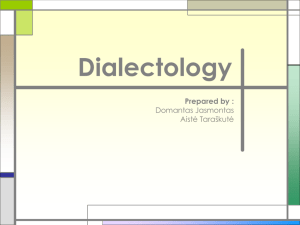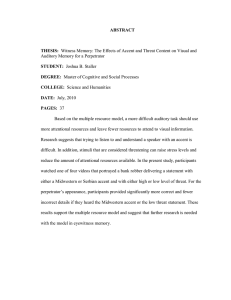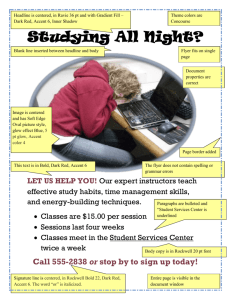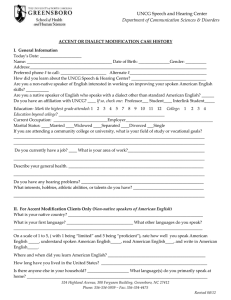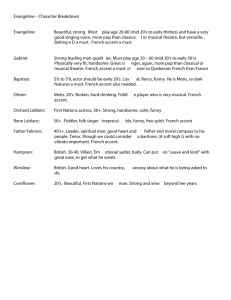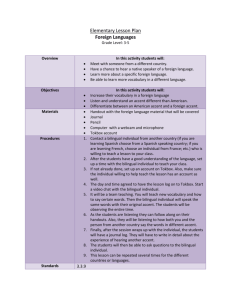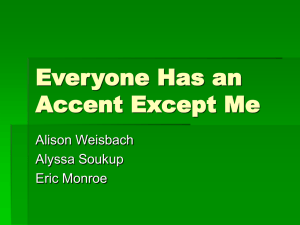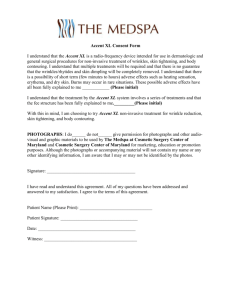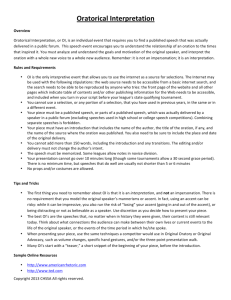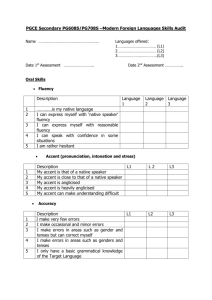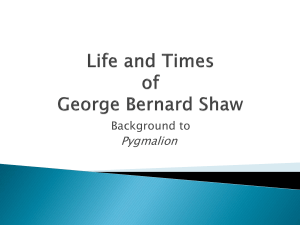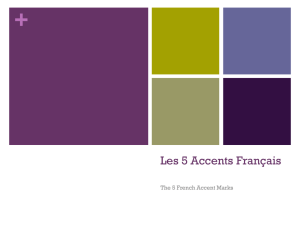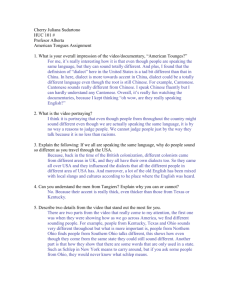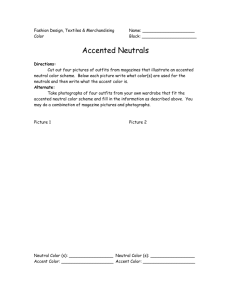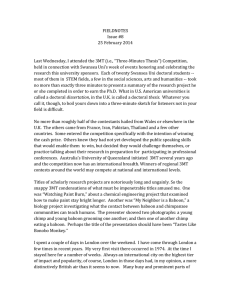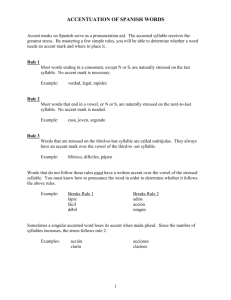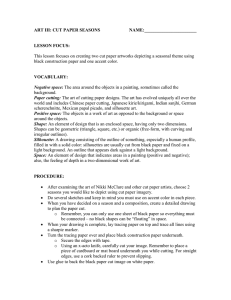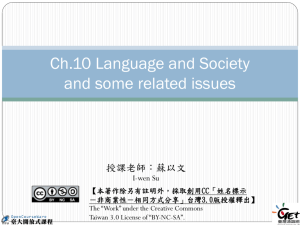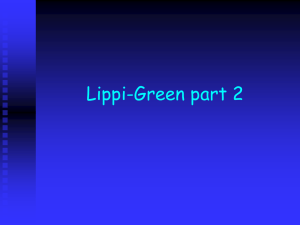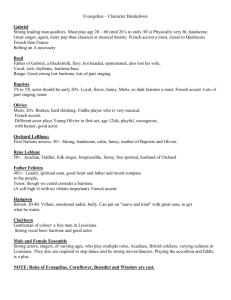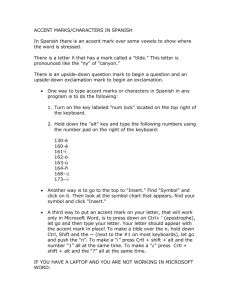Glossary of language terms
advertisement
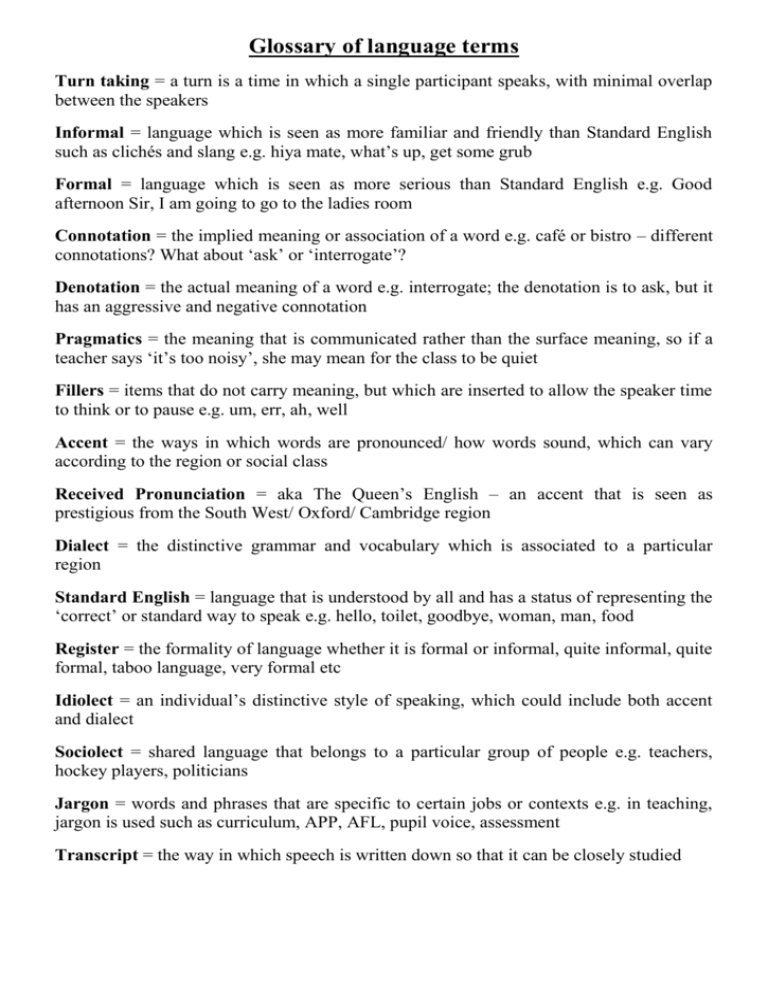
Glossary of language terms Turn taking = a turn is a time in which a single participant speaks, with minimal overlap between the speakers Informal = language which is seen as more familiar and friendly than Standard English such as clichés and slang e.g. hiya mate, what’s up, get some grub Formal = language which is seen as more serious than Standard English e.g. Good afternoon Sir, I am going to go to the ladies room Connotation = the implied meaning or association of a word e.g. café or bistro – different connotations? What about ‘ask’ or ‘interrogate’? Denotation = the actual meaning of a word e.g. interrogate; the denotation is to ask, but it has an aggressive and negative connotation Pragmatics = the meaning that is communicated rather than the surface meaning, so if a teacher says ‘it’s too noisy’, she may mean for the class to be quiet Fillers = items that do not carry meaning, but which are inserted to allow the speaker time to think or to pause e.g. um, err, ah, well Accent = the ways in which words are pronounced/ how words sound, which can vary according to the region or social class Received Pronunciation = aka The Queen’s English – an accent that is seen as prestigious from the South West/ Oxford/ Cambridge region Dialect = the distinctive grammar and vocabulary which is associated to a particular region Standard English = language that is understood by all and has a status of representing the ‘correct’ or standard way to speak e.g. hello, toilet, goodbye, woman, man, food Register = the formality of language whether it is formal or informal, quite informal, quite formal, taboo language, very formal etc Idiolect = an individual’s distinctive style of speaking, which could include both accent and dialect Sociolect = shared language that belongs to a particular group of people e.g. teachers, hockey players, politicians Jargon = words and phrases that are specific to certain jobs or contexts e.g. in teaching, jargon is used such as curriculum, APP, AFL, pupil voice, assessment Transcript = the way in which speech is written down so that it can be closely studied More Advanced Glossary Clipping – words that are shortened e.g. pub Blend – parts of two words blended together e.g. brunch, chillax Loan words – words that are from another language e.g. pizza, café Eponyms – words that are formed from people’s names e.g. dyson, hoover, biro Compounds – two words joined, usually through a hyphen e.g. submarine, co-operate Acronyms – letters that stand for different words e.g. OMG, NATO Elision – taking out letters or parts of words to blend sounds e.g. txt, wanna Overt prestige – people who openly or who are aware of changing their speech e.g. accent and/ or words to appear more prestigious Covert prestige – people who are unaware of changing their speech e.g. accent and/ or words to appear more prestigious Transcript Conventions (0.0) lapsed time in tenths of a second e.g. (0.5), (2.0) (.) a gap of approximately one tenth of a second [ point of overlapped speech beginning ] point at which overlapped speech ends word underlined word indicates the speaker emphasises the word WORD capitals indicates shouting by the speaker
